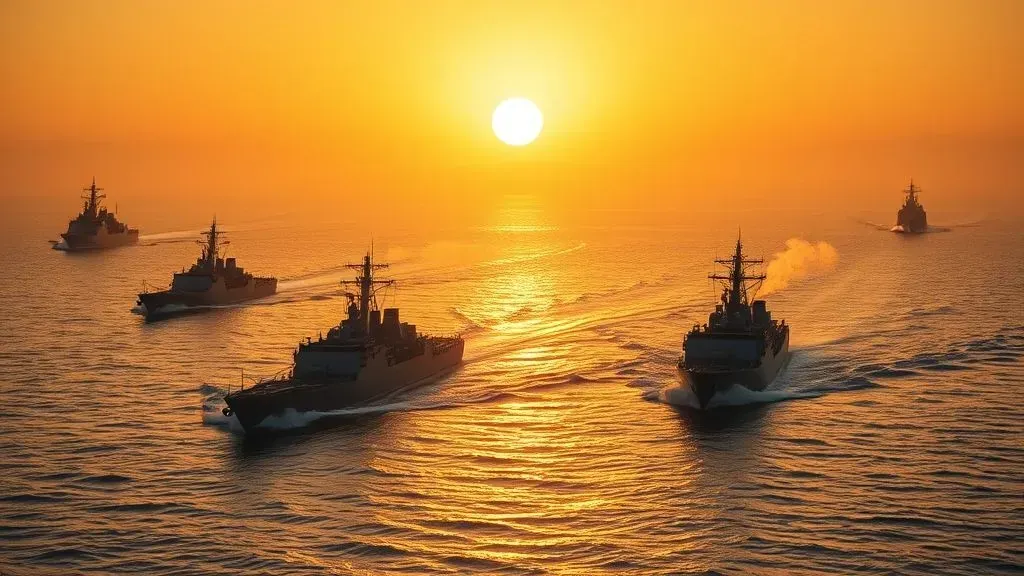
China-Russia Naval Drills in Sea of Japan Signal Strategic Partnership
Date Published
China and Russia have initiated a series of joint naval drills in the Sea of Japan, marking a significant step in their military cooperation and partnership. The exercises aim to demonstrate their capacity to counterbalance Western influence in the region.
Chinese and Russian Naval Cooperation Deepens with Sea of Japan Drills
The ongoing Joint Sea-2025 exercises, which began near Vladivostok, involve submarine rescue, anti-submarine warfare, air defense, anti-missile operations, and maritime combat drills. Four Chinese vessels, including guided-missile destroyers Shaoxing and Urumqi, are participating alongside Russian ships.
These drills are part of an annual tradition since 2012, but this year's location in the Sea of Japan signals a strategic shift from previous exercises along China’s southern coast. The joint operations are designed to enhance operational coordination and demonstrate military strength to regional observers.
Strategic Implications of the Joint Exercises
According to China’s Ministry of National Defence, the drills serve to deepen “the comprehensive strategic partnership” between Beijing and Moscow. Chinese officials emphasize that these exercises are defensive and not aimed at any specific country. However, their timing and scope raise concerns about regional security among neighboring nations.
Russian President Vladimir Putin and Chinese President Xi Jinping jointly support these efforts, reinforcing their alliance amid Western sanctions and geopolitical tensions. The exercises include maritime patrols in the Pacific, indicating a broader intent to project power across key maritime routes.
Japan’s Ministry of Defence warned that China’s increasing military cooperation with Russia poses security challenges. Despite official claims that the drills are purely defensive, experts see them as a message of strategic unity between China and Russia against US-led influences.
While China has maintained a neutral stance regarding Russia’s ongoing war in Ukraine, many Western allies suspect Beijing's support extends beyond diplomatic rhetoric. The lack of explicit condemnation suggests a nuanced approach amid complex regional geopolitics.
Regional Security and Global Impact
These joint naval exercises reflect evolving security alliances that could reshape regional stability in East Asia and the Pacific. As China and Russia strengthen military ties, neighboring countries must reassess their strategic postures amidst rising tensions. The significance of these drills extends beyond immediate military implications to broader geopolitical shifts in global influence.
Understanding this military collaboration provides insight into how China-Russia relations are influencing regional security dynamics. It underscores the importance for international observers to monitor future developments closely, especially as these nations seek to challenge US-led dominance in global affairs.